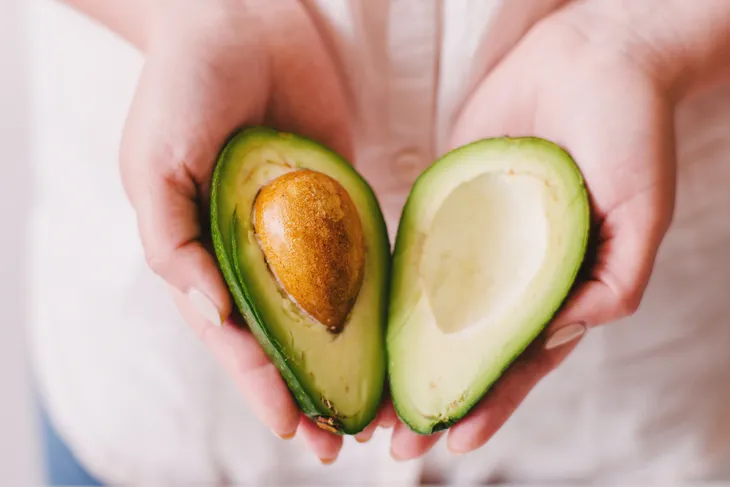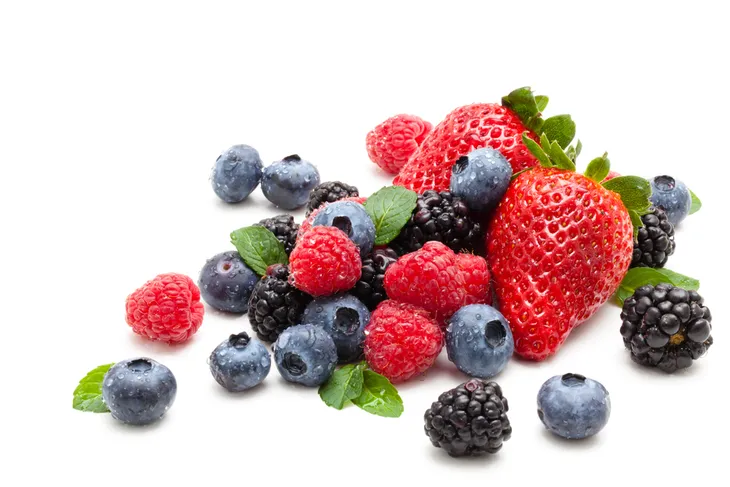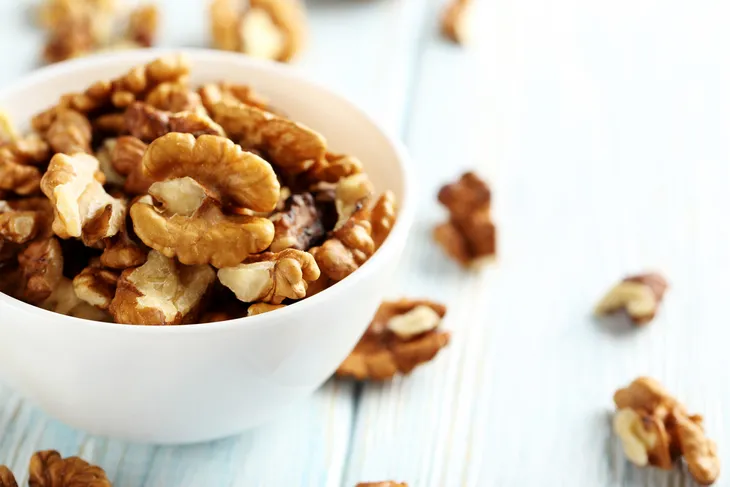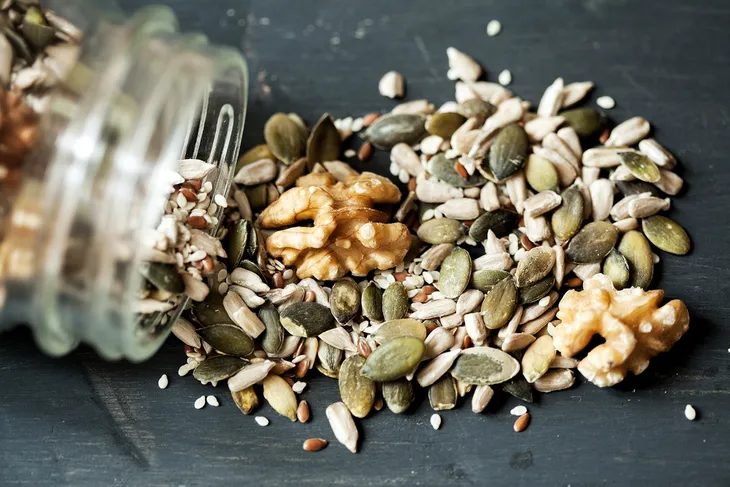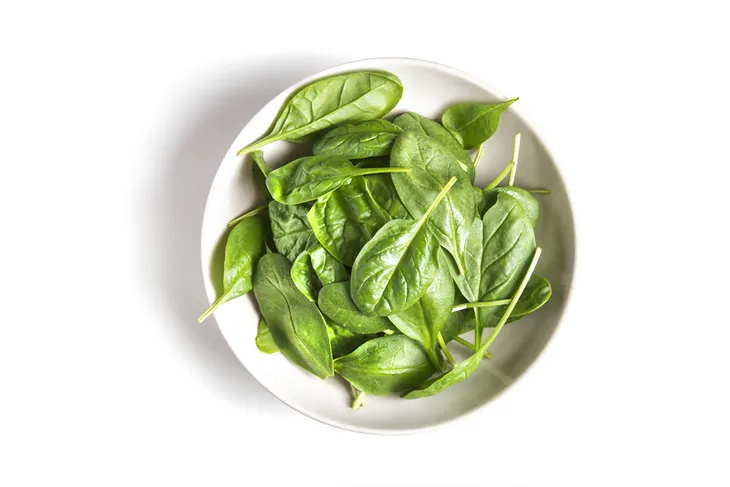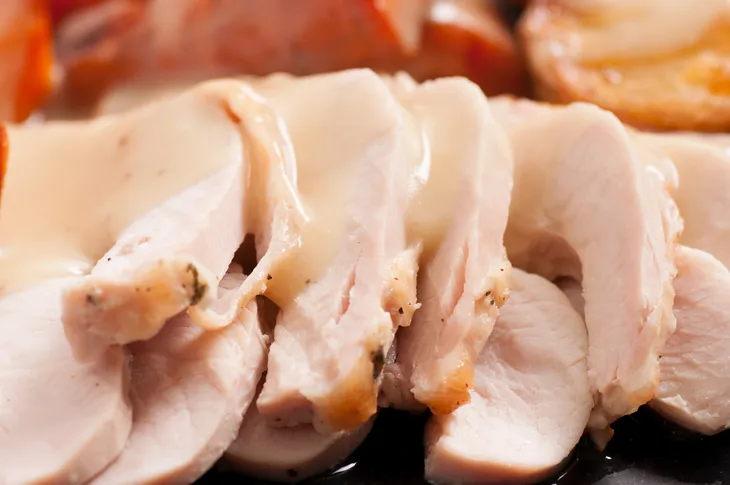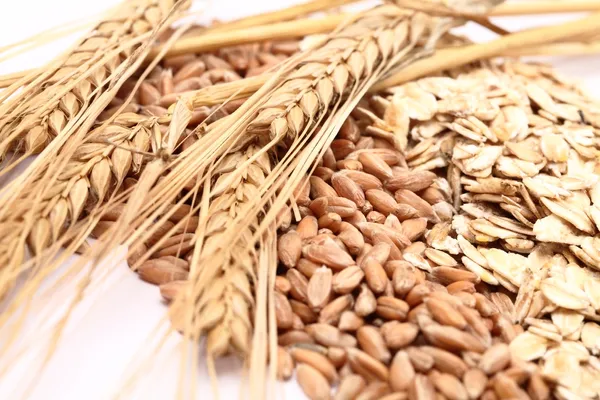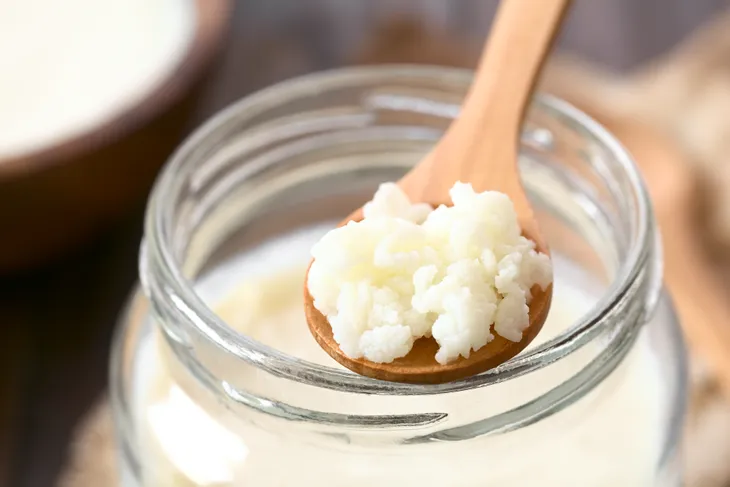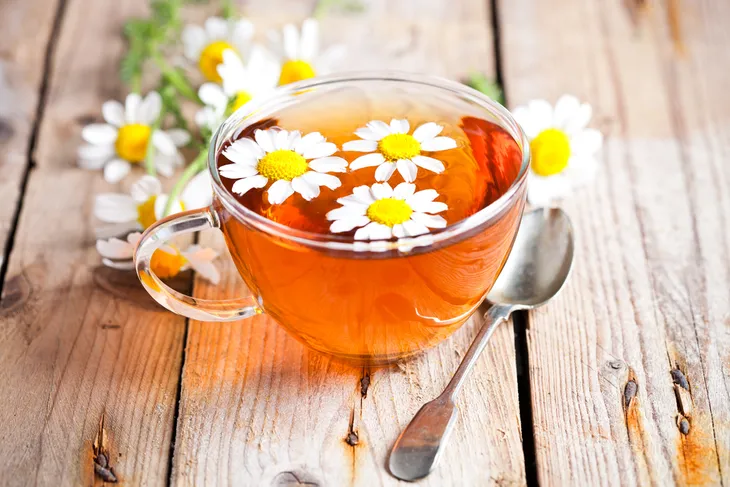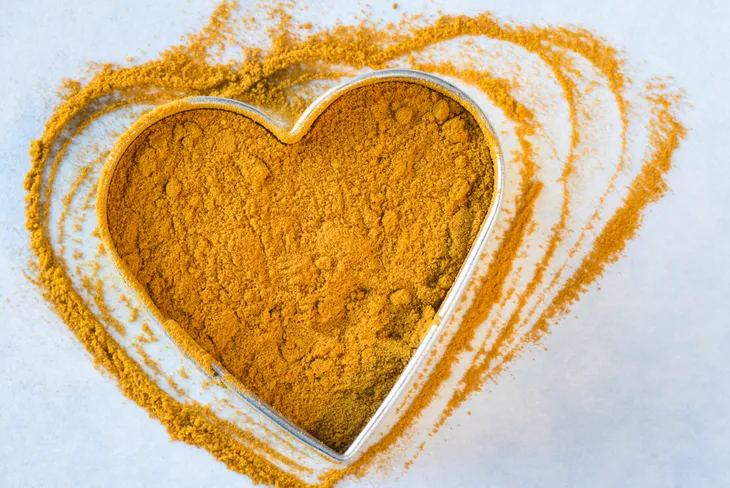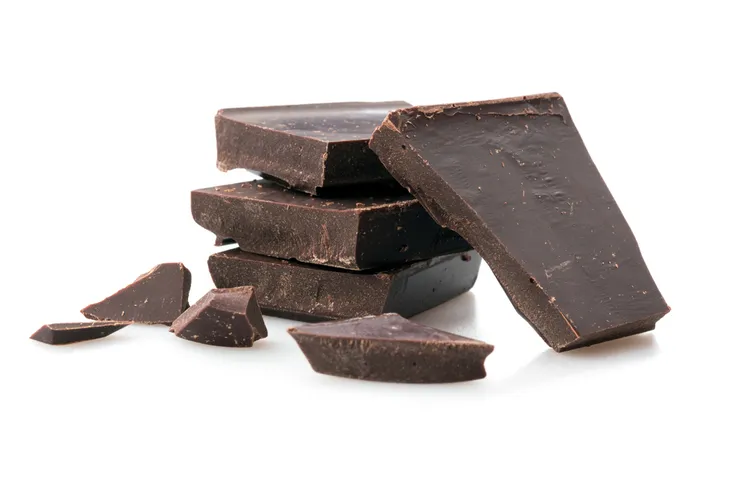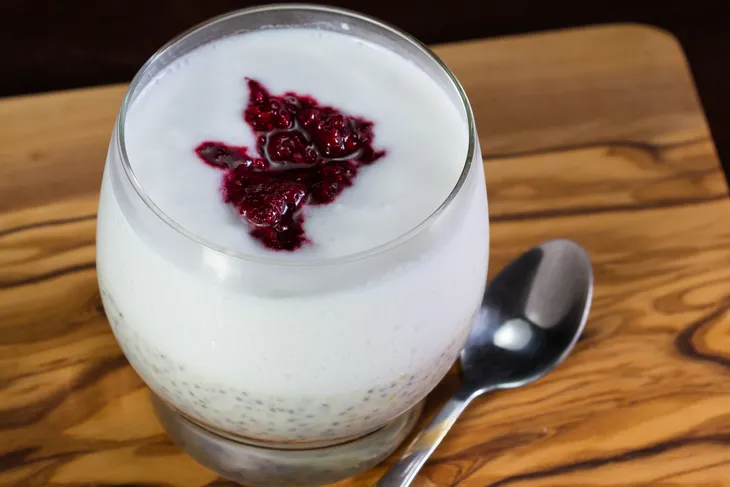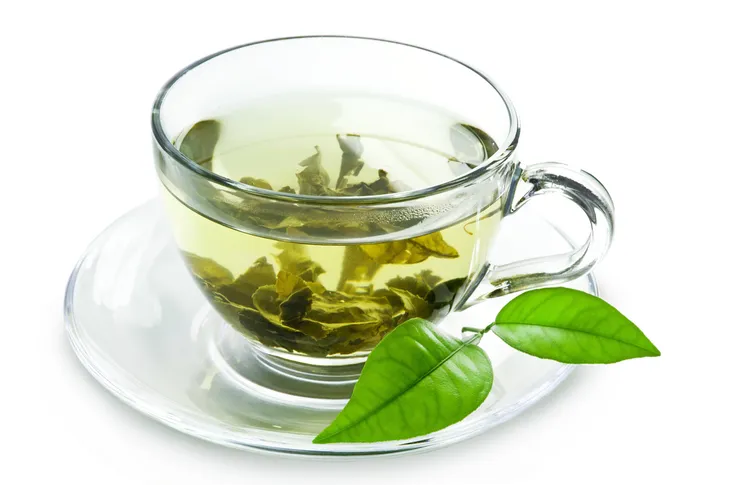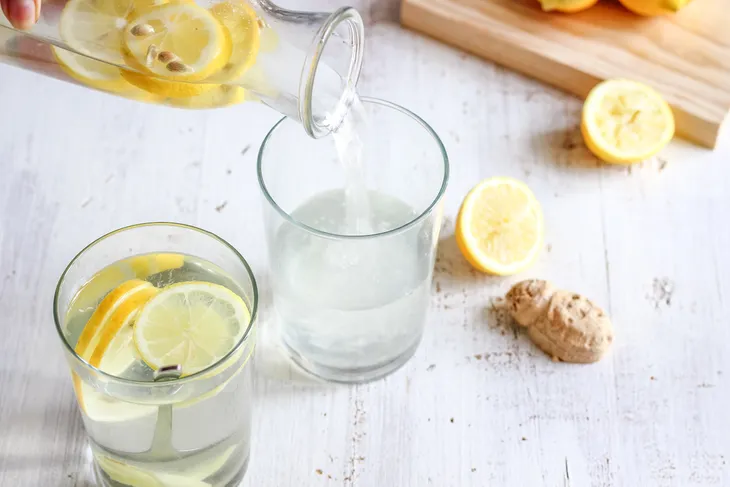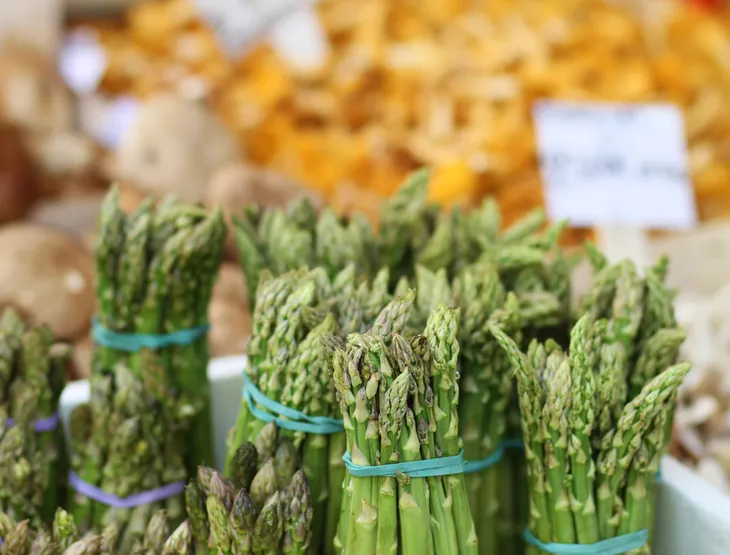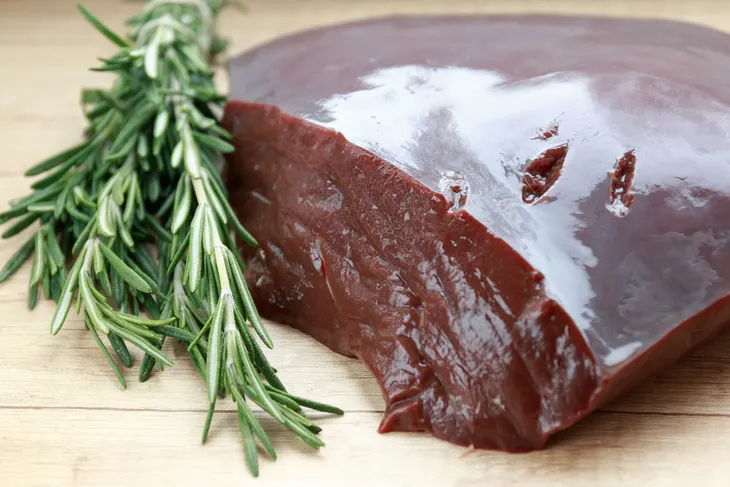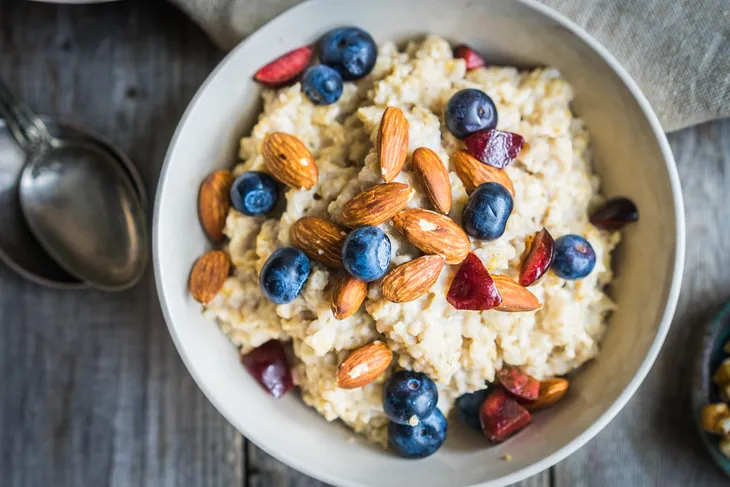In the United States alone, anxiety disorders affect more than 40 million adults aged 18 or older—over 18 percent of the country’s population. To help treat it, doctors most commonly recommend therapies and medications, but there may be an even more effective way: food.
Our brains require certain vitamins and minerals in order to function properly. Insufficient intake can “alter brain chemistry and the formulation of neurotransmitters—chemicals in the brain that can stimulate and calm,” says Melissa Reagan Brunetti, CNC, to Reader’s Digest. Eating more of these 20 nutrient-rich foods can not only help to ease anxiety symptoms when they happen, but regular consumption may also help to reduce their occurrence altogether.
1. Avocado
Yet more reasons to love these superfruits! Avocados are an excellent source of B vitamins, which are essential for maintaining healthy nerves and brain cells. They’re also rich in potassium, a mineral that helps to naturally lower blood pressure.
And, according to a study published in the Nutrition Journal, eating avocados can help to maintain a steady mood throughout the day by regulating the body’s blood sugar levels.
2. Berries
Blueberries may be small, but they’re packed full of nutrients like vitamin C and other antioxidants, which help to relieve stress by repairing and protecting the cells. The same goes for strawberries, raspberries and blackberries.
For something different, try acai berries. Like blueberries, they’re considered to be a superfood because they contain plenty of phytonutrients and antioxidants.
3. Nuts
Those who suffer from anxiety should consider snacking on almonds, as they are a valuable source of zinc, which helps to maintain a balanced mood. They’re also rich in iron, a mineral that prevents brain fatigue, a factor that the Calm Clinic says “can contribute to both anxiety and a lack of energy.”
Walnuts are also beneficial for reducing anxiety due to the omega-3 fatty acids they contain. According to Food Matters, the body converts these fatty acids “into docosahexaenoic acid (DHA) to lower norepinephrine, a hormone which can make you feel anxious and irritable.”
4. Seeds
When coping with stress and anxiety, the body often becomes low on zinc. This mineral is essential to the proper functioning of the immune and nervous systems, so it’s important to counter this depletion by consuming foods that contain it.
One such food is sesame seeds, which have 10 milligrams of zinc per 100 gram serving. Pumpkin seeds are another excellent source of zinc, with approximately 7 to 8 milligrams per serving, but they should be eaten raw in order to preserve their nutritional value.
5. Spinach
Spinach is a very rich source of magnesium, a mineral that the body becomes quickly depleted in when experiencing anxiety. Magnesium is essential for lowering high blood pressure and regulating cortisol levels, which help the body manage stress.
Spinach—as well as other leafy greens like kale, Swiss chard and bok choy—also contains folate, which helps to produce mood-regulating neurotransmitters like dopamine and serotonin.
6. Turkey
Turkey contains an amino acid called tryptophan, which is responsible for the “turkey coma” many of us have experienced after a big Thanksgiving dinner. According to MindBodyGreen, this reaction occurs because “tryptophan is a precursor to the neurotransmitter serotonin, which helps you to feel calm.”
Tryptophan can also be found in foods such as chicken, bananas, dairy, oats, soy and nuts; however, a study has indicated that it is most effective in treating anxiety when it comes from a protein source.
7. Whole Grains
For those who can tolerate gluten, whole grains are an excellent way to combat anxiety. Like spinach, they are a rich source of magnesium, a deficiency of which can lead to anxiety.
Whole grains also contain the amino acid tryptophan, which turns into the calming neurotransmitter serotonin. Interestingly, seaweed possesses these exact same benefits and is a gluten-free way to help ease anxiety.
8. Kefir
Probiotics play a crucial role in maintaining the body’s gut health, as they encourage the growth of good bacteria. And good bacteria are essential to the production of neurotransmitters like serotonin and dopamine, which affect mood.
Kefir, the full-fat variety, is considered among the best sources of these beneficial microorganisms. It also contains brain-boosting vitamins like A, D and K2. Probiotics can also be found in foods like yogurt, kombucha and kimchi.
9. Salmon
Salmon is one of the healthiest fish to eat because it’s high in omega-3 fatty acids and vitamin D, both of which promote brain health. The two most beneficial omega-3 fatty acids in salmon are eicosapentaenoic acid (EPA) and docosahexaenoic acid which have calming effects on the human body. Healthline states that studies have shown “these fatty acids can reduce inflammation and prevent brain cell dysfunction that leads to the development and mental disorders like anxiety.” People who consume these omega-3 fatty acids are better equip to handle change, including any stress that might trigger anxiety.
So what about vitamin D? Well, Healthline explains that vitamin D is just as beneficial for the brain because it may “improve levels of calming neurotransmitters.” All it takes is a few servings each week. To prove this is true, a 2014 study looked at a group of men who ate Atlantic salmon three times a week for five months and found that their anxiety levels had improved, as well as their heart rate, especially against those who’d eaten other proteins like chicken, pork or beef.
10. Chamomile
There’s a reason people offer a cup of tea when someone isn’t feeling well. It’s not just because the warm drink tends to make us feel better, it’s because certain types of tea, like chamomile, may be useful in reducing anxiety. Chamomile is high in antioxidants “proven to reduce inflammation, which might decrease the risk of anxiety,” writes Healthline.
The source states that several studies have been performed in the past to find out if and why chamomile is effective in reducing stress and some have found that people with generalized anxiety disorder (GAD) “experienced a significantly greater reduction in symptoms after consuming chamomile extract, compared to those who did not.” Another study found similar results in people who consumed chamomile extract for a period of eight weeks and found reduced symptoms of depression and anxiety.
It’s important to note that many of the successful studies have used chamomile extract, not tea. So more research is needed to see if chamomile tea can have the same effect.
11. Turmeric
Turmeric can help reduce anxiety because it contains curcuminoids. These antioxidants “have a neuroprotective quality and help enhance your mood,” says MindBodyGreen. The source cites a 2014 study which found that curcumin can help treat major depressive disorders, like anxiety.
Healthline also cites numerous other studies which have all found different benefits of curcumin. The first study found that it may boost our levels of the omega-3 fatty acid DHA and another found that it has “powerful antioxidant and anti-inflammatory properties that have been shown to prevent damage to brain cells,” writes the source. Cucurmin is able to reduce inflammatory markers like cytokines which have been known to cause anxiety. It can also increase “blood antioxidant levels which tend to be low in individuals with anxiety.”
12. Dark Chocolate
You probably don’t need any convincing to start eating more dark chocolate, but in case you do, this food has been shown to reduce anxiety. Health.com talked to registered dietitian Cynthia Sass who said the antioxidants in dark chocolate ”trigger the walls of blood vessels to relax, which boosts circulation and lowers blood pressure.” She also points out that research has shown “people who eat 1.5-ounces of dark chocolate daily for two weeks experienced a reduction in stress hormones.”
Cocoa can also “boost blood flow to your brain and heart, and make you less anxious,” writes WebMD. You’ll want to buy the real stuff, not that milky chocolate. We’re talking 70-percent cocoa and in small amounts because “the caffeine in chocolate can make anxiety worse if you have too much.” Plus it’s high in fat and calories, notes WebMD.
13. Yogurt
Yogurt is a great food to eat to improve mood, including anxiety, because it it’s a source of probiotics. “Your gut bacteria is needed for production of neurotransmitters, including serotonin, dopamine, and GABA [gamma-aminobutyric acid], which all play a role in mood,” says clinical nutritionist and health coach Melissa Reagan Brunetti, CNC, to Reader’s Digest. “The microbiome [gut bacteria] has a direct link to the brain and the immune system, so restoring balance in the gut of good bacteria through use of probiotics can benefits the brain.”
Healthline backs this claim up by citing studies which have shown that probiotics may “promote health and brain function by inhibiting free radicals and neurotoxins, which can damage nerve tissue in the brain and lead to anxiety.” For example, a study published in the International Journal of Food Sciences and Nutrition found that people who ate yogurt on a regular basis were better able to cope with stress than those who didn’t.
14. Green Tea
Another tea that may be able to reduce stress and anxiety is green tea. This is because it contains “L-theanine, an amino acid that has been studied for the positive effects it may have on brain health and anxiety reduction,” writes Healthline. The source cites a study published in the Biological Psychology Journal which found that people who consumed L-theanine “had decreased levels of cortisol, a stress hormone linked with anxiety.”
How does it work? Healthline suggests that L-theanine works to “prevent nerves from becoming overexcited. Additionally, L-theanine may increase GABA, dopamine and serotonin, neurotransmitters that have been shown to have anti-anxiety effects.”
15. Water
Drinking adequate amounts of water on a daily basis are super important to keeping our body healthy, for numerous reasons. One of the many reasons to drink water is because it can help with anxiety. “Staying hydrated with clean water is very important,” says clinical nutritionist and health coach Melissa Reagan Brunetti, CNC, to Reader’s Digest. Want proof? A study performed by the University of Connecticut found that even mild dehydration can affect a person’s mood.
One of the studies authors, Lawrence E. Armstrong, PhD told Reader’s Digest, “Our thirst sensation doesn’t really appear until we are one or two percent dehydrated. By then dehydration is already setting in and starting to impact how our mind and body perform.” It’s still unknown how dehydration or lack of water really affects our mood, specifically anxiety, but researchers believe it could be due to our natural warning system that helps us survive.
16. Asparagus
According to Men’s Health, depression has been linked to low levels of folic acid, so people who suffer from anxiety and depression should make sure they’re eating foods like asparagus, which boost folic acid. The source states that a single cup of asparagus will provide two thirds of the daily recommended amount of folic acid. MindBodyGreen also points out that asparagus contains potassium which has been shown to reduce blood pressure.
Asparagus is so effective in reducing anxiety that in 2013 the Chinese government claimed asparagus extract would be considered a medicinal food because of “its ability to reduce stress and promote relaxation,” writes Health.com.
17. Oysters
A study published in the Nutrition and Metabolic Insights Journal found that people who suffer from anxiety tend to have an nutrient imbalance of zinc and copper. “This trace mineral ratio is responsible for proper neurotransmitter function and adaptation to stress. Increased copper and decreased zinc may lead to symptoms of anxiety,” writes MindBodyGreen.
To boost levels of zinc, eat more oysters! This seafood superfood is packed with zinc and can offer an easy solution to rebalancing the body’s trace mineral ratio and evening out stress levels. If you’re really not a fan of seafood, WebMD says you can boost zinc levels with other foods like cashews, liver, beef, or eggs.
18. Organ Meat
While they’re not everyone’s favorite thing to eat, organ meats come with a lot of nutritional benefits. They are some of the best foods to eat to reduce anxiety because they contain high levels of zinc and vitamin D. “They also contain copious amounts of choline, needed for the synthesis of the neurotransmitter acetylcholine,” writes MindBodyGreen.com.
Liver is among the best organ meats to eat because it also contains vitamin B’s which “are needed for methylation, a metabolic process in the body that is responsible for proper synthesis of neurotransmitters that regulate mood,” says the source. Before eating an excess of organ meats please clarify and confirm how much you should eat based on your overall health. Too much organ meat consumption could lead to Vitamin A toxicity and elevate your cholesterol.
19. Oranges
Vitamin C has been shown to lower blood pressure and reduce hormone levels of cortisol, says Men’s Health. You can eat an orange fresh and on it’s own as a tasty snack, or some freshly squeezed orange juice! Just make sure there hasn’t been any sugar added.
“Our adrenal glands are the most concentrated storage tissue for vitamin C and they use the nutrient in the regulation of cortisol,” says Ali Miller, RD, an integrative dietitian and author of The Anti-Anxiety Diet when talking to Health.com. The source also refers to a study published in the Pakistan Journal of Biological Sciences which showed that vitamin C supplements can reduce anxiety.
20. Oatmeal
Another great breakfast food is oatmeal! Not only is it super easy to make, it’s got some really great health benefits which include boosting our levels of the hormone serotonin which is what keeps us calm and relaxed. “They also provide steady, even energy and are packed with antioxidants and nutrients involved in mood regulation,” says Cynthia Sass, RD, a contributing nutrition editor to Health.com.
And we’re not talking about eating those really processed sugary brands of oatmeal. Make you those thick old fashioned oats and add some fruits to it to sweeten up the flavor. “Coarse oats are higher in fiber and so they take longer to digest (meaning their calming effect actually lasts longer),” writes Men’s Health.

